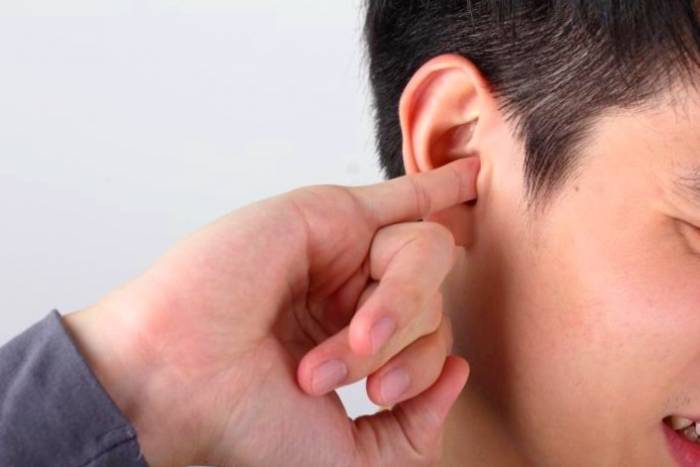Why do my ears itch everyday
Experiencing an itchy sensation in the ears can be a daily nuisance that disrupts your comfort and focus. While occasional ear itching is common and often harmless, persistent itching warrants a deeper look into potential causes. This article explores the reasons behind daily ear itching, covering medical conditions, environmental factors, and possible treatments to alleviate this persistent problem.

Understanding the Anatomy of the Ear
To grasp why ears might itch daily, it’s helpful to understand the basic anatomy of the ear. The ear consists of three main parts: the outer ear, middle ear, and inner ear. The outer ear includes the pinna (the visible part) and the ear canal, which is where most itching occurs. The middle ear houses the eardrum and ossicles, while the inner ear contains the cochlea and vestibular system, crucial for hearing and balance.
The skin lining the ear canal is delicate and contains hair follicles, glands, and nerve endings that can easily become irritated. Various factors can lead to inflammation or dryness in this area, resulting in the persistent itchiness many people experience.
Common Causes of Daily Ear Itching
- Earwax Buildup
Earwax (cerumen) is a natural substance produced by glands in the ear canal to protect and lubricate the skin. However, excessive earwax can cause blockages, leading to discomfort and itching. Using cotton swabs or other objects to clean the ears can push earwax deeper, exacerbating the problem.
- Dry Skin
Dry skin in the ear canal is a frequent cause of itching. This can be due to environmental factors like low humidity or excessive cleaning, which strips away the natural oils that keep the skin moisturized. Conditions such as eczema and psoriasis can also affect the ear canal, causing chronic dryness and itching.
- Infections
Bacterial or fungal infections can lead to itching in the ears. Otitis externa, commonly known as swimmer’s ear, is an infection of the outer ear canal often caused by moisture trapped in the ear, creating an ideal environment for bacteria and fungi to grow. Symptoms include itching, redness, and discharge.
- Allergic Reactions
Allergic reactions to various substances can cause itching in the ears. Common allergens include hair products, jewelry, earplugs, and hearing aids. Allergies to certain foods or environmental allergens like pollen and dust can also contribute to ear itching.
- Ear Dermatitis
Ear dermatitis is an inflammation of the skin inside the ear canal, often caused by allergic reactions or irritants. It can lead to redness, swelling, and intense itching. Contact dermatitis, resulting from contact with irritating substances, is a common form of ear dermatitis.
- Foreign Objects
Foreign objects in the ear, including insects, can cause significant irritation and itching. Children are particularly prone to inserting small objects into their ears, but adults can also experience this issue, often due to accidental insertion of items like cotton swabs.
- Hormonal Changes
Hormonal changes, particularly in women during menopause, can lead to changes in skin texture and moisture levels, potentially causing dry and itchy ears.
- Ear Trauma
Trauma to the ear, whether from excessive scratching or inserting objects, can damage the delicate skin in the ear canal, leading to inflammation and itching. In severe cases, this can also cause infections, compounding the issue.
Diagnosis and When to See a Doctor
Persistent ear itching should be evaluated by a healthcare professional to determine the underlying cause. A thorough examination of the ear, including an otoscopic examination, can help diagnose conditions like earwax impaction, infections, and dermatitis. If allergies are suspected, allergy testing may be recommended.
You should see a doctor if:
- The itching persists for more than a few days.
- There is significant pain, swelling, or discharge from the ear.
- You experience hearing loss or dizziness.
- Home remedies and over-the-counter treatments do not provide relief.
Treatment Options for Daily Ear Itching
Treatment for daily ear itching depends on the underlying cause. Here are some common treatments:
- Earwax Removal
For earwax buildup, doctors may recommend ear drops to soften the wax or perform professional ear irrigation to remove the blockage safely. Avoid using cotton swabs, as they can push wax further into the ear.
- Moisturizing Drops
For dry skin, over-the-counter ear drops that contain a gentle moisturizer can help alleviate dryness and itching. Keeping the ears dry and avoiding excessive cleaning can also prevent dryness.
- Antibiotic or Antifungal Treatments
If an infection is diagnosed, antibiotic or antifungal ear drops may be prescribed to treat the infection. It’s important to follow the treatment regimen as directed by your doctor to ensure the infection is fully resolved.
- Allergy Management
Managing allergies involves identifying and avoiding allergens. Antihistamines or steroid ear drops may be prescribed to reduce inflammation and itching. For contact dermatitis, discontinuing use of the offending product and using topical steroids can help.
- Topical Steroids
Topical steroid creams or drops can reduce inflammation and itching caused by conditions like eczema and psoriasis. These should be used under medical supervision to avoid potential side effects.
- Ear Hygiene
Proper ear hygiene is crucial in preventing ear itching. Clean the outer ear gently with a washcloth and avoid inserting objects into the ear canal. If water enters the ears, dry them thoroughly to prevent infections.
- Avoiding Irritants
Identifying and avoiding irritants that trigger itching is essential. This includes avoiding hair products that can enter the ear canal and ensuring hearing aids or earplugs are clean and well-fitted.
Home Remedies for Ear Itching
In addition to medical treatments, several home remedies can help alleviate ear itching:
- Warm Compress
Applying a warm compress to the affected ear can help reduce itching and discomfort. The warmth can soothe irritated skin and promote circulation.
- Olive Oil
A few drops of warm olive oil can help soften earwax and moisturize dry skin. Ensure the oil is not too hot to avoid burns.
- Aloe Vera
Aloe vera gel has soothing and anti-inflammatory properties that can help alleviate itching. Apply a small amount to the outer ear, avoiding the ear canal.
- Hydrogen Peroxide
A diluted solution of hydrogen peroxide can help clean the ear canal and remove excess earwax. Use this remedy with caution and avoid using it if there is any suspicion of an ear infection.
Preventing Ear Itching
Preventing ear itching involves maintaining good ear hygiene and avoiding known irritants. Here are some tips:
- Regular Cleaning: Clean the outer ear gently with a damp cloth, avoiding insertion of objects into the ear canal.
- Avoiding Moisture: Keep ears dry, especially after swimming or bathing. Use earplugs while swimming to prevent water from entering the ear canal.
- Allergy Management: Identify and avoid allergens that trigger itching. Use hypoallergenic products and avoid hair products that can enter the ears.
- Proper Use of Ear Devices: Ensure hearing aids and earplugs are clean and fit properly to avoid irritation.
- Avoid Overcleaning: Avoid excessive cleaning of the ears, as this can strip away natural oils and lead to dryness and itching.
Conclusion
Daily ear itching can be a bothersome condition with various underlying causes. Understanding the potential reasons behind this discomfort is crucial for finding effective treatment and relief. Whether it’s due to earwax buildup, infections, allergies, or other factors, addressing the root cause is key to preventing and managing ear itching. If you experience persistent or severe symptoms, consulting a healthcare professional is essential for proper diagnosis and treatment. By maintaining good ear hygiene and being mindful of potential irritants, you can minimize the risk of daily ear itching and enjoy greater comfort and well-being.


